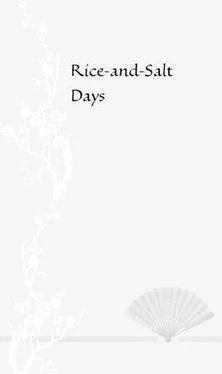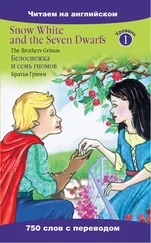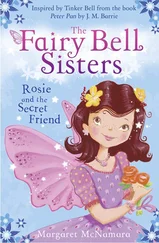Lisa See - Snow Flower And The Secret Fan
Здесь есть возможность читать онлайн «Lisa See - Snow Flower And The Secret Fan» весь текст электронной книги совершенно бесплатно (целиком полную версию без сокращений). В некоторых случаях можно слушать аудио, скачать через торрент в формате fb2 и присутствует краткое содержание. Жанр: Старинная литература, на английском языке. Описание произведения, (предисловие) а так же отзывы посетителей доступны на портале библиотеки ЛибКат.
- Название:Snow Flower And The Secret Fan
- Автор:
- Жанр:
- Год:неизвестен
- ISBN:нет данных
- Рейтинг книги:3 / 5. Голосов: 1
-
Избранное:Добавить в избранное
- Отзывы:
-
Ваша оценка:
- 60
- 1
- 2
- 3
- 4
- 5
Snow Flower And The Secret Fan: краткое содержание, описание и аннотация
Предлагаем к чтению аннотацию, описание, краткое содержание или предисловие (зависит от того, что написал сам автор книги «Snow Flower And The Secret Fan»). Если вы не нашли необходимую информацию о книге — напишите в комментариях, мы постараемся отыскать её.
Snow Flower And The Secret Fan — читать онлайн бесплатно полную книгу (весь текст) целиком
Ниже представлен текст книги, разбитый по страницам. Система сохранения места последней прочитанной страницы, позволяет с удобством читать онлайн бесплатно книгу «Snow Flower And The Secret Fan», без необходимости каждый раз заново искать на чём Вы остановились. Поставьте закладку, и сможете в любой момент перейти на страницу, на которой закончили чтение.
Интервал:
Закладка:
Every day I become more and more like Wife Wang. Do you remember when my aunt told us that story? I have become a vegetarian. My in-laws don’t care. It leaves more meat for them.
I am alone in the world but for you and my son.
I wish I had never lied to you. I promised I would always tell you the truth, but I don’t like you knowing of my ugly life.
I sit at the lattice window and look across the fields to my home village. I imagine you at your window looking back at me. My heart flies across the fields to you. Are you sitting there? Do you see me? Do you feel me?
Without you I am sad. I urge you to write or visit me.
Snow Flower
This was horrible! I looked out the lattice window toward Jintian, wishing that I could at least see Snow Flower. I felt terrible knowing that she was suffering and I couldn’t put my arms around her to comfort her. In front of my mother-in-law and the other women in the upstairs chamber I pulled out a piece of paper and mixed ink. Before I picked up the brush, I reread Snow Flower’s letter. The first time I had taken in only her sadness. Now I realized she’d broken from the traditional stylized lines used by wives in their letters and was using her nu shu to write more candidly and forthrightly about her life.
With her bold act, I realized the true purpose of our secret writing. It was not to compose girlish notes to each other or even to introduce us to the women in our husbands’ families. It was to give us a voice. Our nu shu was a means for our bound feet to carry us to each other, for our thoughts to fly across the fields as Snow Flower had written. The men in our households never expected us to have anything important to say. They never expected us to have emotions or express creative thoughts. The women—our mothers-in-law and the others—put up even greater blockades against us. But from here on out, I hoped Snow Flower and I would be able to write the truth of our lives, whether we were together or apart. I wanted to drop the set phrases that were so common among wives in their rice-and-salt days and express my real thoughts. We would write as we had talked when we were huddled together in the upstairs chamber of my natal home.
I had to see Snow Flower and tell her things would be better. But if I visited her against my mother-in-law’s wishes, I would be committing one of the worst crimes possible. Sneaking around to write or read letters paled in comparison to this, but I had to do it if I wanted to see my laotong.
bq. Snow Flower,
I cry to think of you in that place. You are too good to have such ugliness in your life. We must see each other. Please come to my natal home for Expel Birds Festival. We will bring our sons. We will be happy again. You will forget your troubles. Remember that beside a well one does not thirst. Beside a sister one does not despair. In my heart I am forever your sister.
Lily
Sitting in the upstairs chamber, I planned and schemed, but I was scared. Simplicity seemed best—I would pick up Snow Flower in my palanquin on my way home—but it would also be the easiest way to get caught. The concubines might look out the lattice window and see my palanquin veer to the right toward Jintian. Even more dangerous, the roads would be busy with many women—including my mother-in-law—returning to their natal homes for the festival. Anyone might see us; anyone might report us, if only to curry favor with the Lu family. But by the time the festival arrived, I had built up my bravery to the point I thought we might succeed.
THE FIRST DAY of the second lunar month marked the beginning of farming season, hence the Expel Birds Festival. Inside, on that morning, the women in our household rose early to make sticky rice balls; outside, birds waited for the men to begin planting rice seeds. I worked next to my mother-in-law, squeezing together the balls, using this rice to protect more rice, that most precious of daily foods. When the time came, Tongkou’s unmarried women carried the bird feast outside and set the balls on sticks in the fields to attract the birds, while the men sprinkled poisoned grain along the edges of the fields for the birds to continue gorging themselves. Just as the birds pecked at their first deadly mouthfuls, Tongkou’s married women stepped into palanquins, got on carts, or climbed onto the backs of big-footed women to be taken through the fields back to their natal villages. The old women tell us that if we don’t leave, the birds will eat the rice seeds our husbands are about to sow and we won’t be able to give them any more sons.
As planned, my bearers stopped in Jintian. I did not get out of the palanquin for fear someone might see me. The door swung open and Snow Flower, with her son asleep on her shoulder, joined me. It had been eight months since I’d seen her at the Temple of Gupo. With all the work she did, I had imagined that whatever plumpness she had gained during her pregnancy would be gone, but she was still shapely beneath her tunic and skirt. Her breasts were larger than mine, although I could see that her son was scrawny compared to my own. Her stomach also bulged, which was why she’d placed her son on her shoulder instead of cradled in her arms.
She gently turned her son so I could see him. I pulled my son from my breast and lifted him so the babies were face-to-face. They were now seven and six months old. They say all babies are beautiful. My son was, but her boy, despite his thick black hair, was as thin as a river reed, with sickly yellow skin and features scrunched into a scowl. But of course I complimented her on him and she did the same to me.
As our bodies swayed, bumped, and lurched to the bearers’ gait, we talked about our new projects. She was weaving a piece of cloth that incorporated a line from a poem—a very difficult and taxing undertaking. I was learning how to make pickled birds—a relatively easy task except that it needed to be done correctly to prevent spoilage. But these were simple pleasantries; we had serious things to talk about. When I asked her how things were going, she did not hesitate for a moment.
“When I wake up in the morning, there is no joy except what I feel for my son,” she confessed, her eyes locked onto mine. “I like to sing when I wash the clothes or bring in the firewood, but my husband gets angry if he hears me. When he is displeased, he won’t permit me to cross over the threshold for anything other than my chores. If he is happy, in the evening he lets me sit outside on the platform where he kills his pigs. But when I’m there, I can only think of the animals that have died. When I fall asleep at night, I know I will rise again, but there will be no dawn, only darkness.”
I tried to reassure her. “You say these things because you are a new mother and it has been winter.” I had no right to compare my loneliness to hers, but even I was enveloped by melancholy on those occasions, when I missed my natal family or the cold shadows of the shortened days dampened my heart. “Spring is here,” I offered, both to her and myself. “We’ll be happier with the longer days.”
“My days are better when they are short,” she replied matter-of-factly. “Only when my husband and I go to bed do the complaints stop. I don’t hear my father-in-law grumble about the weakness of his tea, my mother-in-law chastise me for the softness of my heart, my sisters-in-law demand clean clothes, my husband order me to be less of an embarrassment in the village, or my son demand, demand, demand.”
I was appalled that my old same’s situation was this bad. She was miserable and I didn’t know what to say, though just a few days ago I’d promised myself that we would be more candid with each other. In my confusion and awkwardness I let myself be bound up by convention.
Читать дальшеИнтервал:
Закладка:
Похожие книги на «Snow Flower And The Secret Fan»
Представляем Вашему вниманию похожие книги на «Snow Flower And The Secret Fan» списком для выбора. Мы отобрали схожую по названию и смыслу литературу в надежде предоставить читателям больше вариантов отыскать новые, интересные, ещё непрочитанные произведения.
Обсуждение, отзывы о книге «Snow Flower And The Secret Fan» и просто собственные мнения читателей. Оставьте ваши комментарии, напишите, что Вы думаете о произведении, его смысле или главных героях. Укажите что конкретно понравилось, а что нет, и почему Вы так считаете.












